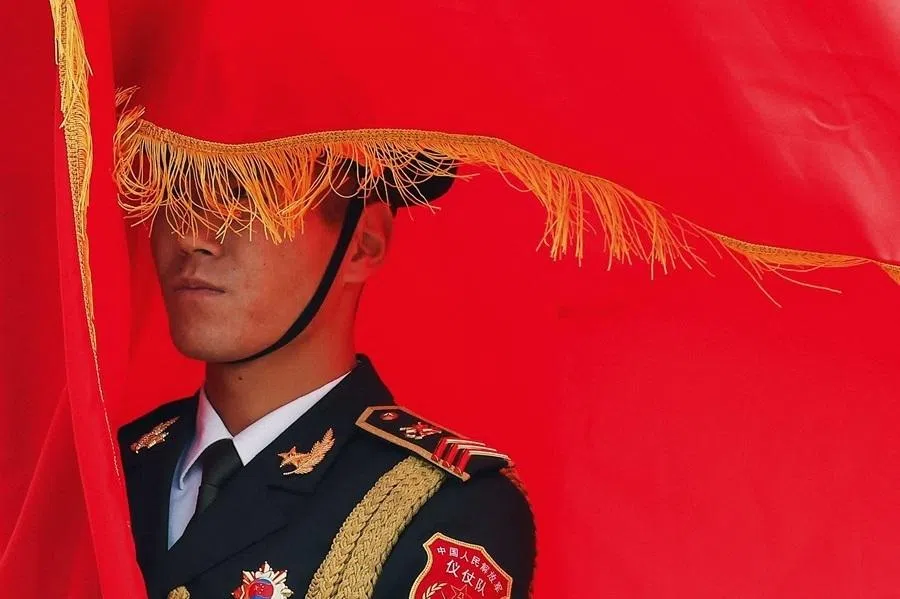Chinese academic: What China wants to see from the Gaza-Israel war
Academic Fan Hongda says that the Gaza-Israel war is dividing the world on the lines of whether or not they are on the side of the G7. Although there has been no large-scale military spillover yet, the political spillover of the Gaza-Israel war is obvious. For China, a stable and peaceful Middle East is what it wants most. Thus, it has a great stake in pushing for an end to the war.
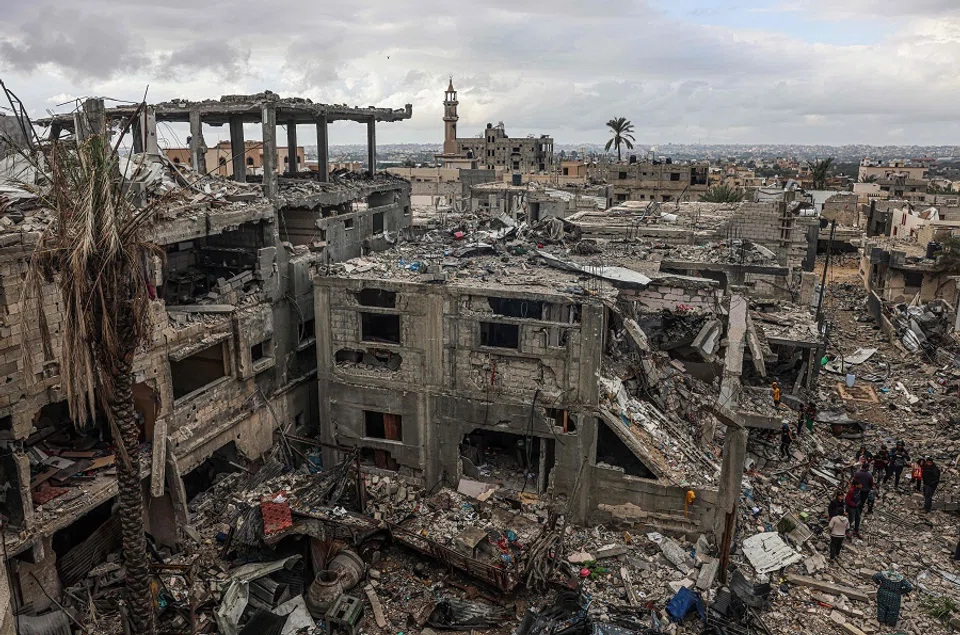
The Gaza-Israel war which broke out on 7 October has gone on for over a month, even though it is currently under a temporary ceasefire. As of 28 November, Gaza's Health Ministry said the death toll of Palestinians as a result of the conflict has reached more than 14,800 people. Barbara Leaf, the highest ranking official in the US State Department in charge of Middle East affairs, was of the view that the number of civilian deaths in Gaza could be higher than estimated numbers. According to an Israeli foreign ministry spokesperson on 10 November, about 1,200 people were killed in Israel on 7 October alone, with more than 200 captured as hostages and taken back to Gaza.
So far, Turkey, Honduras, Bahrain, Jordan, Colombia, Chile and other countries have recalled their ambassadors to Israel.
Unquestionably, this is the most intense conflict between Gaza and Israel since 2007, when Hamas took over control of Gaza. Also, this conflict is spilling over to some extent; as of 22 November, the Lebanese group Hezbollah has already lost 85 soldiers in the conflict against Israel. Yemen's Houthis armed forces have also repeatedly launched attacks against Israel.
Iran, Turkey and other Middle Eastern countries have continued to speak out firmly against Israel, with Iran even going so far as to claim that if Israel continues to step up on its attack of the Gaza Strip, the conflict could be elevated to the next level. Since the fighting began, US military bases and facilities in Iraq and Syria have come under multiple attacks, and there is news that once Iran gets involved in the war, the US will not stand by.
Changing perceptions
Amid the continuation and possible escalation of the Gaza-Israel conflict, the international community is beginning to change its perception of the roles played by the two sides in the conflict. Israel is shifting from being the victim during the 7 October attack, to the perpetrator intent on continuing the war with no regard for the humanitarian crisis in Gaza. On the other hand, Gaza is shifting from the initiator of a violent attack to a victim of a cruel conflict. So far, Turkey, Honduras, Bahrain, Jordan, Colombia, Chile and other countries have recalled their ambassadors to Israel.
Clearly, this current round of the Gaza-Israel war is having a far greater international impact than previous conflicts. The focus of the international community has shifted from the 7 October attack on Israel by Gaza's armed forces to the need for a fair resolution to the Palestine issue.
... there is nothing wrong with Beijing's stance on the Palestine issue, which is to have an independent Palestine, in line with United Nations documents and based on the two-state solution generally supported by the international community.
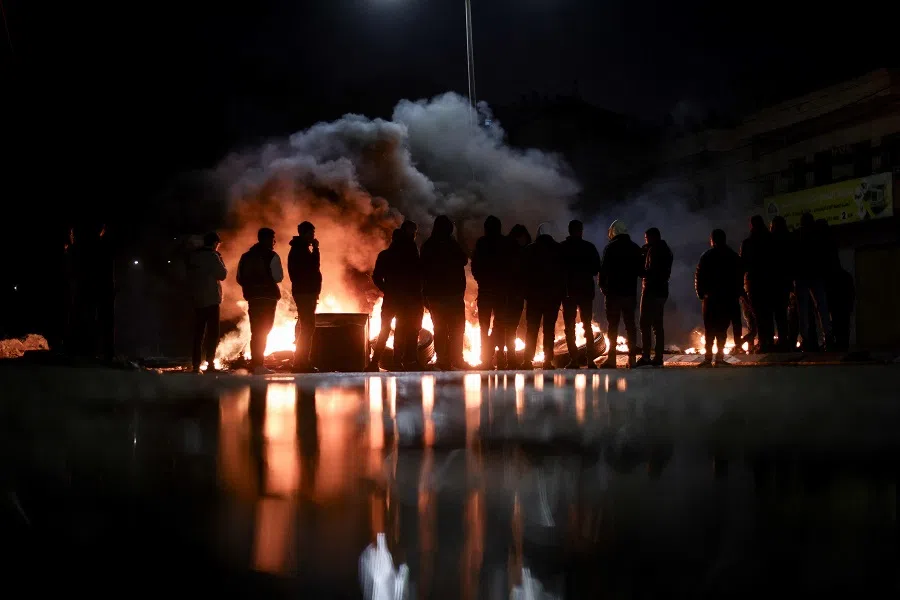
In fact, looking at the response given by China's foreign ministry spokesperson on 8 October, right from the start China has looked at the conflict from the angle of the Palestine issue, and not from the angle of the sudden attack on Israel.
China has called on "relevant parties to remain calm, exercise restraint and immediately end the hostilities" and to implement the two-state solution as a means to resolve the Palestine issue. China's stance has been questioned and criticised by both Israel and the US. Even now, Israel remains unsatisfied with China's stance in the conflict, and has even criticised it.
International voices
Given that Hamas's violent attack on 7 October did indeed warrant a swift condemnation, the initial response by China's foreign ministry was indeed questionable. However, there is nothing wrong with Beijing's stance on the Palestine issue, which is to have an independent Palestine, in line with United Nations documents and based on the two-state solution generally supported by the international community. Chinese President Xi Jinping reiterated China's stance on 21 November, at a special BRICS leaders' virtual summit on the Palestine-Israel issue.
Notably, as the war spreads, a growing number of voices and demonstrators are calling for a permanent ceasefire - even in the US, which is most supportive of Israel. Several pro-Palestinian rallies have also been held in G7 countries such as the UK, Germany and France. However, the G7 as a collective did not call for an immediate ceasefire in their joint statement on 8 November, with the US Secretary of State even suggesting that those calling for an immediate ceasefire have not fully considered the situation. Their latest statement on 28 November said that they supported "the further extension of this pause and future pauses as needed".
To a large extent, on a governmental level, the Gaza-Israel war is dividing the world on the lines of whether or not they are on the side of the G7.
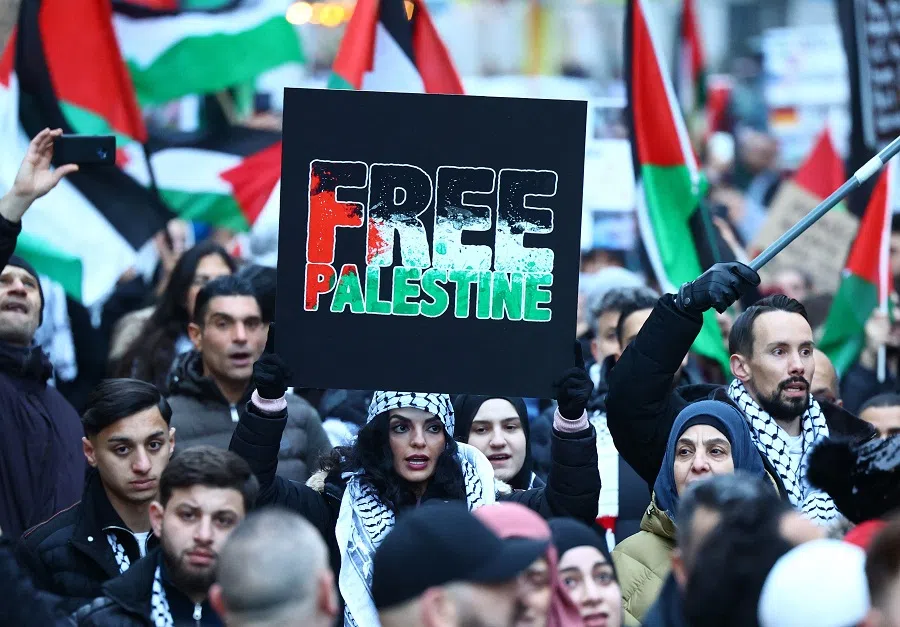
To a large extent, on a governmental level, the Gaza-Israel war is dividing the world on the lines of whether or not they are on the side of the G7. Although there has been no large-scale military spillover yet, the political spillover of the Gaza-Israel war is obvious. What role does the G7 want to play in today's world? This is a question that China must and will consider, given the fact that it is often targeted by the G7.
China's interests
But this is clearly not all that China needs to consider. In the grand scheme of things, the continuation and especially the escalation of the Gaza-Israel war is not in China's interests. A stable and peaceful Middle East is what China wants most. As the world's largest crude oil importer, China certainly does not want the Middle East to be in turmoil or for the situation to further deteriorate as this could drive up global oil prices.
In recent years, Beijing has put forth three forward-looking initiatives - the Global Development Initiative, the Global Security Initiative and the Global Civilisation Initiative - which some international media think is China's plan to reshape the world. Clearly, the intensification of turmoil in the Middle East and the consequent deepening of foreign intervention in Middle Eastern affairs are not conducive to the fulfilment of these three initiatives, at least in the Middle East.
The Middle East is one of the key cooperation regions of China's Belt and Road Initiative (BRI). Based on the third Belt and Road Forum for International Cooperation held in October, the BRI remains a core subject of China's international cooperation. The BRI, which fundamentally aims to pursue common development, also requires a peaceful and stable Middle East.
... once the situation in the Middle East continues to worsen, Middle Eastern leaders will inevitably focus more on national security, which is not a core area of China-Middle East cooperation...
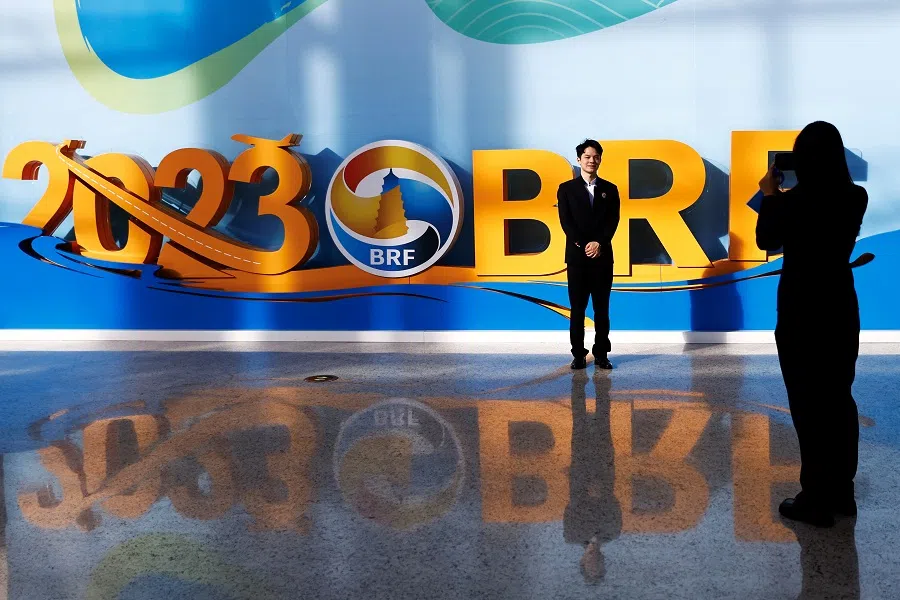
It cannot be overlooked that even some Arab countries are divided in their positions on the war. If the Gaza-Israel war drags on and further escalates, it will exacerbate the divisions in the Middle East, and pose a serious challenge to the wave of reconciliation in the region, which has gained momentum in recent years. It is a proven fact that the more the number of tense situations among Middle Eastern countries, the tougher it is for China to conduct diplomacy there.
China's involvement in the Middle East
Furthermore, once the situation in the Middle East continues to worsen, Middle Eastern leaders will inevitably focus more on national security, which is not a core area of China-Middle East cooperation. This possible scenario is not something Beijing wishes to see, given that great power rivalry is showing no signs of abating and the G7's position on China is relatively unified.
China has indeed increased its political and security footprint in the Middle East in recent years, and helping Saudi Arabia and Iran reach a deal to restore relations did bring the country some prestige. With Beijing already paying great attention to the Palestinian issue, other countries - and especially the Middle East - are scrutinising China's ability to respond to the Gaza-Israel war. This is clearly a challenge for China as well.
Thus, even if the Gaza-Israel war could provide China with some opportunities, its continuation and escalation still does more harm than good to China. Hence, whether out of its responsibility as a world power or its own national interests, China must actively push for an end to the Gaza-Israel war as soon as possible.



![[Big read] When the Arctic opens, what happens to Singapore?](https://cassette.sphdigital.com.sg/image/thinkchina/da65edebca34645c711c55e83e9877109b3c53847ebb1305573974651df1d13a)

